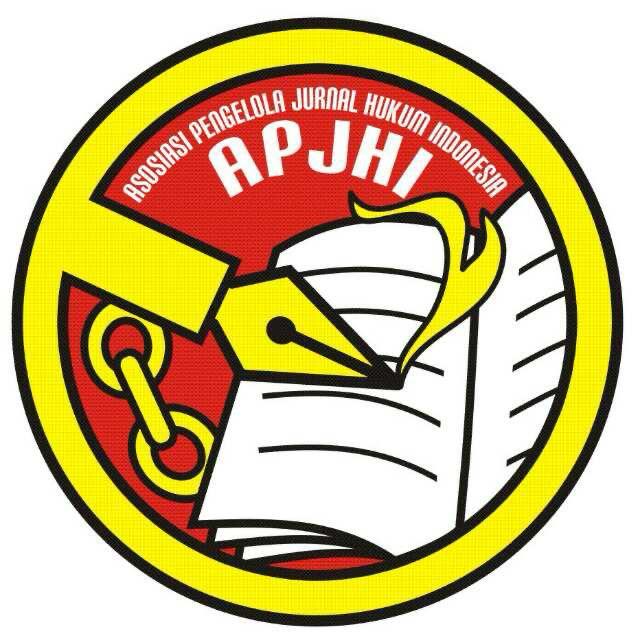The Urgency of Implementing Step-In Rights Clauses in Project Financing Contracts in Indonesia
DOI:
https://doi.org/10.32734/rslr.v3i2.18577Keywords:
Project Financing, KPBU, STEP-IN RIGHTS, CONSTRUCTION, CONTRACTAbstract
The increasing infrastructure development in Indonesia today is directly proportional to the growing need for funding to support such projects. The funding model commonly used in infrastructure development is project finance, where risk management and cost allocation are shared among the project participants. As infrastructure projects become more complex and long-term, they often face various issues such as cash flow problems and losses incurred in the event of default. These issues can actually be addressed by implementing the Step-In Rights Clause, which grants the employer the right to intervene in the work of the contractor. However, the regulation of the step-in rights clause has not yet been explicitly governed by Indonesian legislation. This paper aims to explain the urgency of applying the step-in rights clause in construction contracts. The article employs a normative legal research method with a statute approach and a conceptual approach. In practice, the application of the step-in rights clause offers many advantages and has been implemented in several countries, including Australia.
Downloads
References
Afriyana, L. (2023). "Analisis dampak pembangunan infrastruktur terhadap pertumbuhan ekonomi inklusif pada kabupaten/kota di Provinsi Nusa Tenggara Barat tahun 2016-2021." Jurnal Ekonomi Pembangunan, 5(1), 1-2. Available at: https://doi.org/10.31227/osf.io/xkmz7
Asian Development Bank (2020). Public-private partnership monitor: Indonesia. Metro Manila: Asian Development Bank. Available at: https://www.adb.org/sites/default/files/publication/635166/ppp-monitor-indonesia.pdf
Carla, M. (2016). "Step-in rights mechanisms in project finance transactions and lenders’ liabilities in the English and Brazilian legal approach." King's College London. Available at: https://www.kcl.ac.uk/research/step-in-rights
Fight, A. (2006). Introduction to Project Finance. Elsevier. Available at: https://www.elsevier.com/books/introduction-to-project-finance/fight/978-0-7506-5905-3
Hayes, A. (n.d.). Project finance: How it works, definition, and types of loans. Investopedia. https://www.investopedia.com/terms/p/projectfinance.asp
Hukum Online. (n.d.). Perusahaan ingin mendapatkan pembiayaan dari luar negeri? Ini syaratnya. https://www.hukumonline.com/klinik/a/perusahaan-ingin-mendapatkan-pembiayaan-dari-luar-negeri-ini-syaratnya-lt5327fd095c592/#!
KCIC. (n.d.). Pinjaman luar negeri KCJB bersumber dari China Development Bank. https://kcic.co.id/kcic-siaran-pers/pinjaman-luar-negeri-kcjb-bersumber-dari-china-development-bank
Kementerian Keuangan. (2023). Pembangunan infrastruktur jadi fokus APBN pada tahun 2023. Kementerian Keuangan RI. https://www.kemenkeu.go.id/informasi-publik/publikasi/berita-utama/Fokus-APBN-2023
Kementerian Keuangan. (n.d.). Project finance: Konsep, aplikasi dan evaluasi - KPBU. https://kpbu.kemenkeu.go.id/read/75-222/umum/kajian-opini-publik/project-finance-konsep-aplikasi-dan-evaluasi
Kementerian Komunikasi dan Informatika. (n.d.). Proyek Palapa Ring Barat diluncurkan. https://www.kominfo.go.id/berita/artikel-gpr/detail/proyek-palapa-ring-barat-diluncurkan
Kennywiston. (n.d.). Efektivitas penggunaan hak step-in dan intervensi pada kontrak konstruksi. Kenny Wiston. https://www.kennywiston.com/efektivitas-penggunaan-hak-step-in-dan-intervensi-pada-kontrak-konstruksi/
Kompasiana. (n.d.). Anggaran dan sumber pembiayaan pembangunan Jalan Tol Trans-Jawa. https://www.kompasiana.com/rahmaniviapermatasari1836/5e7ee0c7d541df12d63a7af3
KPBU Kementerian Keuangan RI. (n.d.). Progres proyek KPBU SPAM Semarang Barat. https://kpbu.kemenkeu.go.id/berita/read/1354/progres-proyek-kpbu-spam-semarang-barat/
OCBC NISP. (n.d.). Apa itu kredit sindikasi, pengertian, jenis dan fungsinya. https://www.ocbcnisp.com/id/article/2022/09/01/kredit-sindikasi-adalah
Practical Law. (n.d.). Glossary: Step-in right. https://content.next.westlaw.com/practical-law/document/Ia00a9ba620d311ebbea4f0dc9fb69570
Supriady, D. (2009). "Pemodelan pendanaan project finance berbasis risiko pada proyek properti (Studi kasus: Proyek kondominium di Kebayoran Baru Jakarta Selatan)." Universitas Indonesia. Available at: http://lib.ui.ac.id/detail?id=20288083
Transport for NSW. (2014). OTS PPP project deed. Transport for NSW.
Wick, P. (1997). "Step-in rights: A supplier's perspective." AMPLA Yearbook, 118-123. Available at: https://www.constructionlawinternational.com/ampla-yearbook-supplier-perspective/
Wiston, K. (n.d.). Efektivitas penggunaan hak step-in dan intervensi pada kontrak konstruksi. Kenny Wiston. https://www.kennywiston.com/efektivitas-penggunaan-hak-step-in-dan-intervensi-pada-kontrak-konstruksi/
Yescombe, E. R. (2002). Principles of Project Finance. Academic Press. Available at: https://books.google.com/books/about/Principles_of_Project_Finance.html?id=XXFvQgAACAAJ
Downloads
Published
Issue
Section
License
Copyright (c) 2024 Naomi Audri Klarisa Sitompul, Jevvon Suherman, Hidayat Dita Nur Faizal, Hamit Tantio Lumban Gaol, Adelina Mariani Sihombing

This work is licensed under a Creative Commons Attribution-NonCommercial-ShareAlike 4.0 International License.











